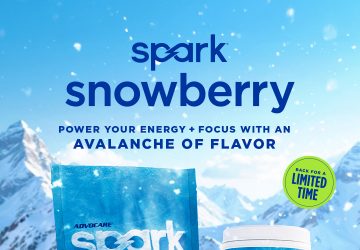Next up: C is for Collagen.
When society hears the word collagen, most people immediately think of skin creams or the next new “anti-aging miracle.” Although there is an emphasis on how collagen affects your skin, it has many benefits Tweet This! outside of your appearance.
What is collagen?
Collagen is an insoluble fibrous protein that comprises about one third of the protein in your body. Tweet This! Collagen acts as part of the building blocks for the hair, skin, nails, tendons and bones and is what gives them their structure. There are at least 16 different types of collagen, but type I collagen makes up about ninety percent of the collagen in the body. Collagen is flexible yet very strong. Tweet This! Amazingly, when compared with steel it wins as being stronger gram for gram!
In regards to skin, collagen is found in the dermis, which is directly below the epidermis (the outer layer of the skin). Did you know that after the age of about 25, you lose about one percent of the collagen in your body each year? Tweet This! This is due to collagen’s dynamic properties, meaning it is always being created and destroyed. Around your mid-twenties, your body begins to produce less collagen each year. Tweet This! When this happens, fine lines start to appear and over time your skin begins to sag and wrinkles begin to become more prominent.
How is collagen made?
Collagen is secreted by different types of cells depending on its location, i.e. tissue. For example, osteoblasts (bone forming cells) secrete collagen in the bone. But, in the skin, fibroblast cells are responsible for secreting it. Like other protein, collagen is made up of tiny units called amino acids.
Collagen is a unique repeating combination of specific amino acids. Tweet This! Glycine, proline and hydroxypoline are linked together to form a helix. A helix is an extended spiral chain of atoms that form amino acids, nucleic acids or other biological molecules. When these chains of amino acids aggregate together, they form rope-like structures that are called fibrils. Then, fibrils aggregate to form collagen fibers.
Picture it this way:
If you took apart a braided nylon rope which is made up of nylon fibers that have been twisted together, those twists are braided together to create a rope stronger than the individual fibers. This cross-linking or braiding is what is partly responsible for giving collagen its tensile strength.
How can I get collagen in my diet? Tweet This!
- Foods high in lycopene such as tomatoes, sweet red peppers, watermelon and pink grapefruit may increase levels of collagen in post-menopausal women. Lycopene is an antioxidant responsible for helping protect cells in the body by supporting reduction of free radical levels, but it may also contribute to increased levels of collagen.
- Foods that are rich in vitamin C like spinach, kale and citrus fruits can help maintain collagen levels in the body by stabilizing specialized proteins called enzymes that are responsible for degrading collagen.
- Protein helps give your body amino acids it needs to make collagen. Tweet This! Egg whites are especially high in lysine and proline, which are two of the three main amino acids present in collagen. For a non-meat option, peanuts are also high in lysine.
- Garlic is a great source of sulfur, which is necessary for collagen production in the body. Tweet This! Garlic also has lipoic acid and taurine that help rebuild collagen fibers.
How does collagen support my health?
As previously mentioned, collagen helps the body maintain the overall health of our hair, nails and skin. Tweet This! Regular intake as part of the diet may support the natural production of collagen in hair shafts to help strengthen hair and increase the diameter of individual strands.
In addition to this great nutritional benefit collagen provides other positive functions! Tweet This!
Having natural collagen production occurring regularly in bone tissue helps support bone health. Supplementation with additional collagen and calcium may be more effective at supporting bone structure in post-menopausal women as compared to just taking calcium and vitamin D by themselves.
All these positive health benefits illustrate why collagen is not just a protein that helps your skin stay looking youthful. Tweet This! It’s also is a one that is good for overall health and wellness. Try incorporating more foods into your diet that will help support natural collagen production at your next meal! Tweet This!
Read the complete blog series of “The ABC’s of Supplementing Your Skin!”
- Part 1: A is for Axstaxanthin
- Part 2: B is for Biotin





